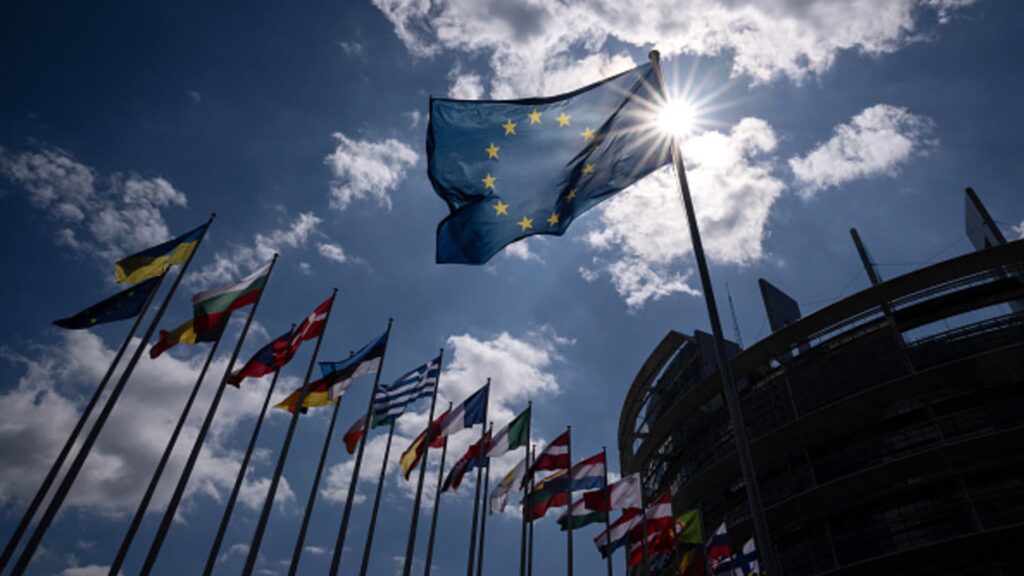This photo shows the flags of European countries flying in front of the European Parliament building in Strasbourg, eastern France, on June 6, 2024. Photo by Xinhua News Agency via Getty Images)
Sébastien Bozon | AFP | Getty Images
The final and biggest voting day of the EU elections takes place on Sunday, with millions of people expected to cast their votes.
Estonians started voting three days early on Monday and polling stations have since opened across the 27 EU member states. Most votes will be cast on Sunday.
More than 400 million people are eligible to vote for the 720 members of the European Parliament (MEP). In some countries, this includes young people – the voting age is 16 in Austria, Belgium, Germany and Malta, and 17 in Greece. Voter turnout at the last EU elections in 2019 was just over 50%, according to official figures.
Exit polls so far
This year’s elections come against a backdrop of growing support for far-right parties in Europe, many of which are also increasingly successful at home.
Among them is the anti-immigration party led by Dutch nationalist Geert Wilders, which made significant gains in Thursday’s Dutch EU elections, according to the latest exit polls. The country’s left-wing Labor and Green parties are expected to gain eight seats, just slightly ahead of Wilders’ Freedom Party (PVV)’s seven seats. Wilders also won a decisive victory in the Dutch national election last November.
In addition to the Netherlands, voting has also ended in the Czech Republic, Malta, Latvia, Slovakia and Ireland.
EU-wide exit polls are expected to be released later on Sunday and will provide a strong indication of what the EU parliament will look like in the coming years.
european parliament
EU elections take place every five years, in which citizens vote for their country’s political parties or MEPs to represent them within the EU.
Voting systems vary slightly from country to country, but citizens can generally vote for the same parties in EU elections as in national elections. The parties then form an alliance in the EU Parliament.
For example, the European People’s Party, which won the most seats in the 2019 EU general election, is composed of MEPs from Christian Democrats, Liberal Conservatives and Conservative parties in the EU.
The 720 MEPs come from all 27 EU countries – the most populous country elects the most MEPs. Germany tops the list with 96 MEPs, while Cyprus, Luxembourg and Malta have the fewest representatives, with six each.
MEPs formulate and decide on the laws and regulations of EU member states to address social, economic, climate, defense and other issues. One example is the Digital Services Act, which aims to tackle illegal and harmful content online and which technology companies such as social media giants must now comply with in Europe.
Analysts expect EU policies to become more protectionist after the election, with defense likely to become a greater focus, while climate and environmental policy fall off the agenda.
The European Parliament also plays a role in the EU budget, which requires approval and oversight, and elects the President of the European Commission, one of the key roles within the EU.

